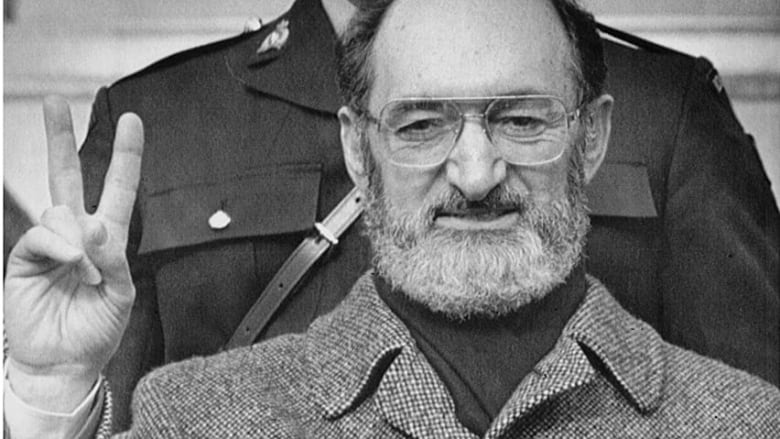Historian’s research on coroners’ inquests in B.C. gives chilling glimpse into criminalization of abortion | CBC News
In October 1921, a woman named Margaret Robertson lay dying in Vancouver General Hospital from a failed abortion induced by slippery elm bark.
A police detective showed up — the second time he had come to grill her for the name of the abortion provider.
“I asked her if she realized she was likely to die,” the officer would later tell a coroner’s jury.
“She said she would die with that information and would not divulge it to any person and she also said she would sooner have her tongue cut out before giving it.”
Robertson was dead by noon the next day — one of the many B.C. women who perished while trying to get an abortion in the decades before Canada’s Supreme Court struck down the law criminalizing abortion in 1988.
Her story would have been lost to time but for the efforts of historians like Susanne Klausen, an expert in movements for reproductive rights and justice who wrote about Robertson’s case and others while doing an undergraduate degree at the University of Victoria in the late ’80s.

Klausen, a Canadian, has gone on to study abortion battles around the globe. She teaches a course on reproductive justice at Pennsylvania State University. She wrote a book about abortion in South Africa.
But she still recalls in vivid detail the outrage she felt as a young woman reading 34 old B.C. coroners’ inquests into failed abortions.
And she has no doubt history will repeat itself if women in the U.S. lose the right to abortion, she says — as appears likely in the wake of a leak of a draft opinion from the country’s Supreme Court that would overturn Roe v. Wade, the decision enshrining the constitutional right to abortion.
“A lot of girls and women, once again if they’re denied access to safe abortions, they’re going to have scary experiences with both unscrupulous people or very helpful abortionists who maybe don’t know what they’re doing,” Klausen said.
“There’s a whole world that’s already been mapped about this by historians working in many, many jurisdictions, because in a sense, it’s always the same story.”
‘Medical men may run themselves into trouble’
Klausen’s research ultimately turned into a 1996 article published in the Canadian Bulletin of Medical History, titled Doctors and Dying Declarations: The Role of the State in Abortion Regulation in British Columbia, 1917-37.
The 30-page paper is chilling. Police regularly sought deathbed statements from victims, postponing an operation for one young, unmarried woman who aborted herself with pills, douches and “possibly an instrument” so she could speak with police.

At a 1920 inquest, a juror asked whether a woman named Agnes Mullins was “in her proper senses” when she gave her dying declaration.
“Yes,” a doctor who was present replied.
“She was very much afraid she was going to die and quite sensible, very sick, vomited and weak, but quite able to sign her statement.”
The women who died from abortions during the period Klausen studied in B.C. were evenly split between married and single, and mostly came from the “labouring classes” or from immigrant families.
Klausen says class and race cannot be separated from the issue of abortion — a fact that holds true throughout time and place: “always young women, teenagers, or rural girls and women, or poor girls and women who don’t have money or social capital.”
During inquests, doctors were questioned about their failures to obtain dying declarations. In one case, a coroner warned a doctor that “medical men may run themselves into trouble” for failing to report a criminal offence.
Police also consistently searched for the identity of lovers of unmarried women, and inquests heard from friends and family suspected of helping victims carry out abortions.
“Don’t you know that it is a criminal offence to assist anybody or advise anybody to have an abortion committed, don’t you know that?” one coroner demanded of a dead woman’s sister.
‘That’s the reality’
Klausen recalls with pride her time as a undergraduate student and as a member of the Pro-Choice Action Network, holding a sit-in at the University of Victoria’s law school when then-Minister of Justice (and later Prime Minister) Kim Campbell came to speak.
At the time, Campbell was in the process of introducing Bill C-43, legislation to replace the abortion law the Supreme Court struck down by retaining abortion as a criminal act but permitting it on broad grounds.
The bill died in the Senate.
Klausen said the fight over abortion sparked a huge national debate as well as the organization that she joined. She says the battle brought many women out of the shadows to tell their own stories and those of loved ones they lost.
“And of course, that’s part of what I was looking into as a young historian when I wrote that article — to show what women went through when abortions were illegal,” she says.
“Because as historians show around the world, regardless of what the law is on abortion, if women are pregnant and do not want to be pregnant, in many cases they’ll go to any length that they have to to terminate that unwanted pregancy. That’s the reality.”
For all the latest health News Click Here

